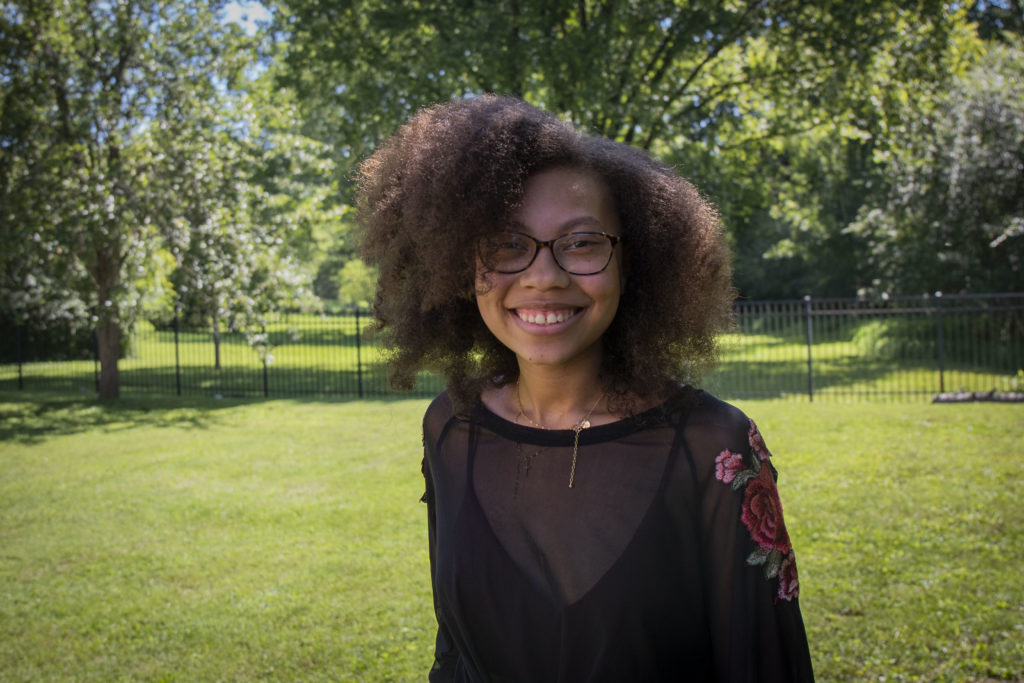
In Nashville’s civil rights movements past and present, people too young to vote have imagined the just society they want to create. For 16-year-old Alora Young, a rising senior at Hillsboro High School and Nashville’s youth poet laureate, that includes acknowledging the contributions of Black women.
Young talked to WPLN News as part of series Breaking Points. Listen to her conversation above, or read interview highlights — and some extras — below.
Interview Highlights
Honoring ancestors whose names have been stripped
Researching my family history and trying to create my family tree actually inspired me to write an entire book of poetry. It was incredibly difficult to follow my family tree back because, slavery. And so every time I would get four or five generations back, and then nothing. But one branch of my family tree, it went all the way back to an actual slave woman who was freed.
It sparked me to want to tell the stories of all the Black women in my family who history doesn’t want to have a name. … In history textbooks, there’s nobody out there telling the stories of the Black women who do good for society in their small town. There’s nobody telling the stories of the Black revolutionaries that get forgotten by the civil rights movements and the women’s rights movements.
And so I look back at my family tree, and I see all of those amazing women who are fighting, who fought for me to be where I am today. And I feel responsible for telling those stories because I have a million generations of mothers who are all in me, who all deserve to be remembered.
Young’s poem ‘Black Mothers’
Black women have
Black babies who become black women who have black babies
And they are all dying
…
White men have black children
and those children only know they are bastards
I won’t say it out loud but I hope that if I bear
a white man’s child they will have their fathers
eyes and privileges
I wonder what it means to gentrify my own womb
People tell me I am already gentrified
Black fathers have black sons and go to prison
When fathers stay we wonder if they are broken
We are all broken
On my family tree I found two slaves
One could be seen because she was freed early
One was left by name in a will
Both of these women had daughters marked in the census as mulattos
Both of these women were labeled as widows
When black mothers are raped by slave owners
They have children who could expose secrets big enough that they are gifted freedom
Black women have black babies who become black women
and black men and it does not take much black to be in danger
Being a teenager during the Black Lives Matter movement
Becoming a Black woman in this age is to know that you have to fight harder to get half the recognition, and to know that you have to fight for all of the Black women around you who are even more likely to go unseen and unheard. As a light-skinned Black woman, I have to fight for brown-skinned Black women. As an able-bodied Black woman, I have to fight for disabled Black women. I have to fight for all of the Black women who will have an even harder time being heard than I will.
And I think that’s part of becoming a woman, being there and loving others, regardless. And I think this movement is helping me learn that faster, because in times of revolution, there is nothing to do but care for others.
The beauty of being Black
You come from such a rich culture, you come from people who found joy in the world, even when they had been subjugated to the worst wrongs you could do to a person. And that resilience, that beauty and art they created — despite all that — is in you. And it is in every fiber of your being.

